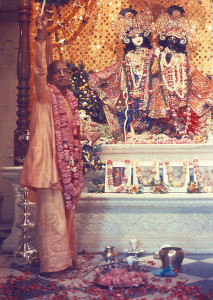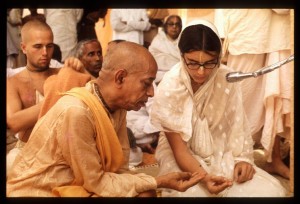SB 1.2.8-10: Need of the spirit soul
SB 1.2.8: The occupational activities a man performs according to his own position are only so much useless labor if they do not provoke attraction for the message of the Personality of Godhead
The need of the spirit soul is that he wants to get out of the limited sphere of material bondage and fulfill his desire for complete freedom. He wants to get out of the covered walls of the greater universe. He wants to see the free light and the spirit. That complete freedom is achieved when he meets the complete spirit, the Personality of Godhead. There is a dormant affection for God within everyone; spiritual existence is manifested through the gross body and mind in the form of perverted affection for gross and subtle matter.




